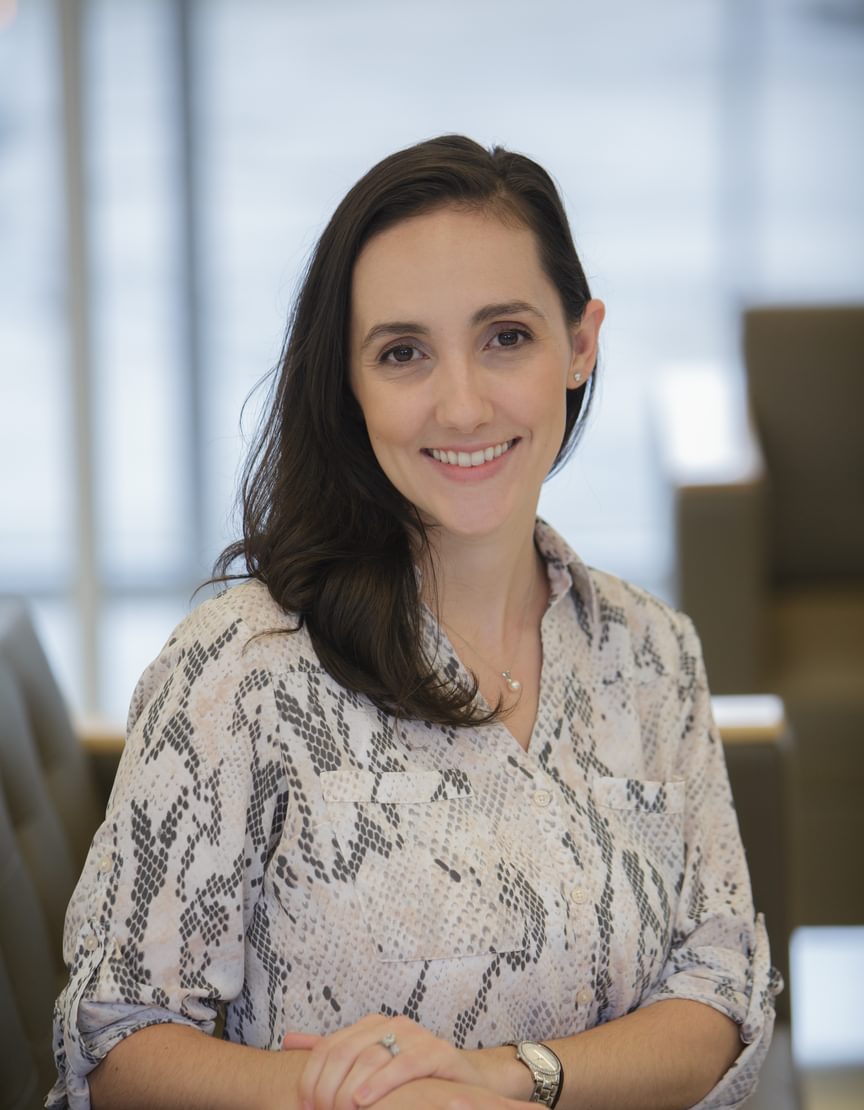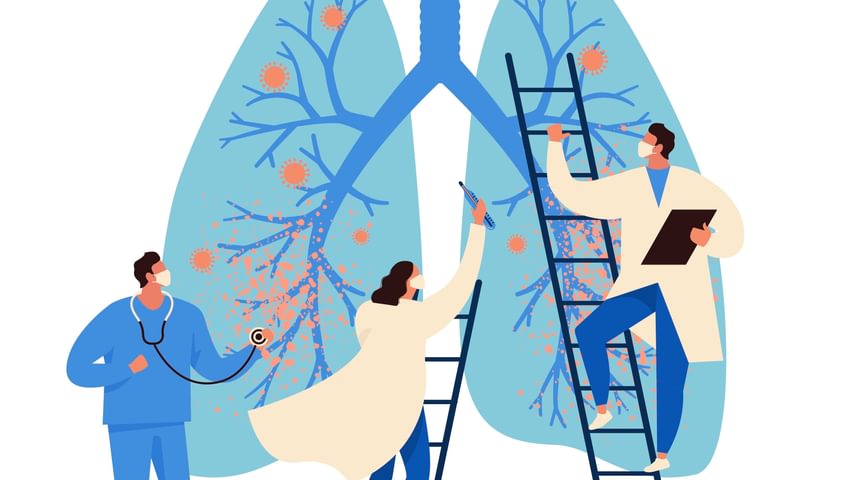
April 10, 2020
Racing toward a cure
Dr. Natalie Exner Dean ’05 says COVID-19 vaccine and treatment research has accelerated at incredible speedby Rita Savard
Time is of the essence. As the death toll from COVID-19 rises worldwide, the global scientific community is racing at unprecedented speed to find effective treatments, while at the same time developing a safe, well-tested vaccine.
Among those on the hunt for a cure is Dr. Natalie Exner Dean ’05, a biostatistician and assistant professor at the University of Florida, who is working on coronavirus vaccine evaluation with the World Health Organization (WHO). Just months after the start of the coronavirus pandemic, Dean says several companies are beginning trials of vaccines and treatments—including more than 50 candidate vaccines being examined and evaluated for efficacy.
“There are a lot of people working very hard on the same problem,” Dean says. “When you have that type of collaboration, we could have success earlier. While we all recognize the need is urgent, we’re also committed to making sure these vaccines or treatments are safe and effective.”
Vaccines typically take a decade or longer to develop. For the Ebola virus, it took five years. And the most recent vaccine-development record was set during the Zika virus outbreak in 2015, when a viable candidate for testing was developed in seven months. COVID-19, by contrast, has raised the stakes, with researchers around the world focusing on a single goal like never before.

A typical regulatory path starts with preclinical data from laboratory and animal models to determine whether a new vaccine has promise. WHO is tracking current vaccine candidates, most in preclinical evaluations, but Dean says two have already been received by humans and advanced without an animal model because they have been used for other diseases.
However, she stresses, every step of the way needs to be intentional.
“We absolutely don’t want to vaccinate a large number of people and then be concerned we are putting them at risk,” Dean adds. “We don’t want to repeat past mistakes where we rushed to get a vaccine out that we weren’t sure was safe.”
The race is also on to compress production timelines.
“We are finding ways to accelerate the process as much as possible, including scaling up manufacturing of vaccine even before we have trial data,” Dean says. “Though a financially risky investment, it would mean we have the vaccine ready to go if it works.”
With the development of potential treatments and vaccines progressing quickly, Dean, along with a team of international experts in statistics and epidemiology, is calling on the implementation of a strategy to make research and development efforts more effective and efficient. Published in the New England Journal of Medicine, a so-called “core protocol” would allow a single clinical trial to extend across multiple infectious disease outbreaks.
“Since outbreaks move from hotspot to hotspot and are very unpredictable, trials need to be flexible so that new sites can be added over time,” Dean says. “Even if the outbreak ends in one part of the country, we can continue to enroll patients from the next hotspot until we have a clear answer.”

Both the National Institutes of Health and WHO have strongly advocated for the core approach during COVID-19. With thousands of patients being enrolled in a few large trials over the coming weeks and months, core protocols will help rapidly evaluate whether treatments work and in which subgroups—the moderately ill or the severely ill.
“This is important,” Dean says, “because while over 80 treatment clinical trials were launched in China early in the epidemic, so far none has been large enough to detect the types of moderate effects that these drugs tend to have. Our group is working on similar multicountry trial strategies for vaccines once these are ready to be tested in large clinical trials.”
While scientists work feverishly to develop a vaccine in record time, the need for treatments is critical—especially for health care workers on the front lines. When doctors and nurses fall sick, the whole health care structure weakens. To meet this urgent need, several studies are underway around the world that seek to use drugs for what is called pre-exposure prophylaxis (PrEP)—a strategy widely used against HIV.
There are a lot of people working very hard on the same problem. When you have that type of collaboration, we could have success earlier.
”These PrEP studies are even more promising than some of the treatment trials, Dean says, because “it is easier to prevent infection than to treat severe disease.”
New treatment trials were also introduced on Tuesday (April 7), in three Massachusetts hospitals that received approval to launch the first U.S. clinical trial of favipiravir (T-705), a Japanese flu drug that could be used to treat COVID-19. Another experimental therapeutic, remdesivir—which has shown promise against other coronaviruses—is also being studied.
Massachusetts, Dean adds, is unique as it is one of the only states currently engaged in a proactive effort for “tracing” the virus by identifying those who have come into contact with people who have tested positive for COVID-19. The state will likely serve as a model for others across the nation.
“Tracing is part of the exit strategy, enabling us to figure out who to test and who to advise to stay home,” Dean says. “Ultimately, we need more testing to gain a better picture. That is key to learning how widespread the disease is and for understanding what the future holds.”
Dr. Natalie Exner Dean ’05 is a biostatistician specializing in vaccine trial design and the statistical analysis of infectious disease outbreaks such as Ebola, Zika, HIV, and now COVID-19. She works in the Department of Biostatistics at the University of Florida.
Other Stories

Filmmakers Christine Yoo ’86 and Hella Winston ’86 take viewers behind the scenes of a unique marathon

Sarah Sherman ’04 on NASA's groundbreaking tech that will help humankind reach new heights in space



